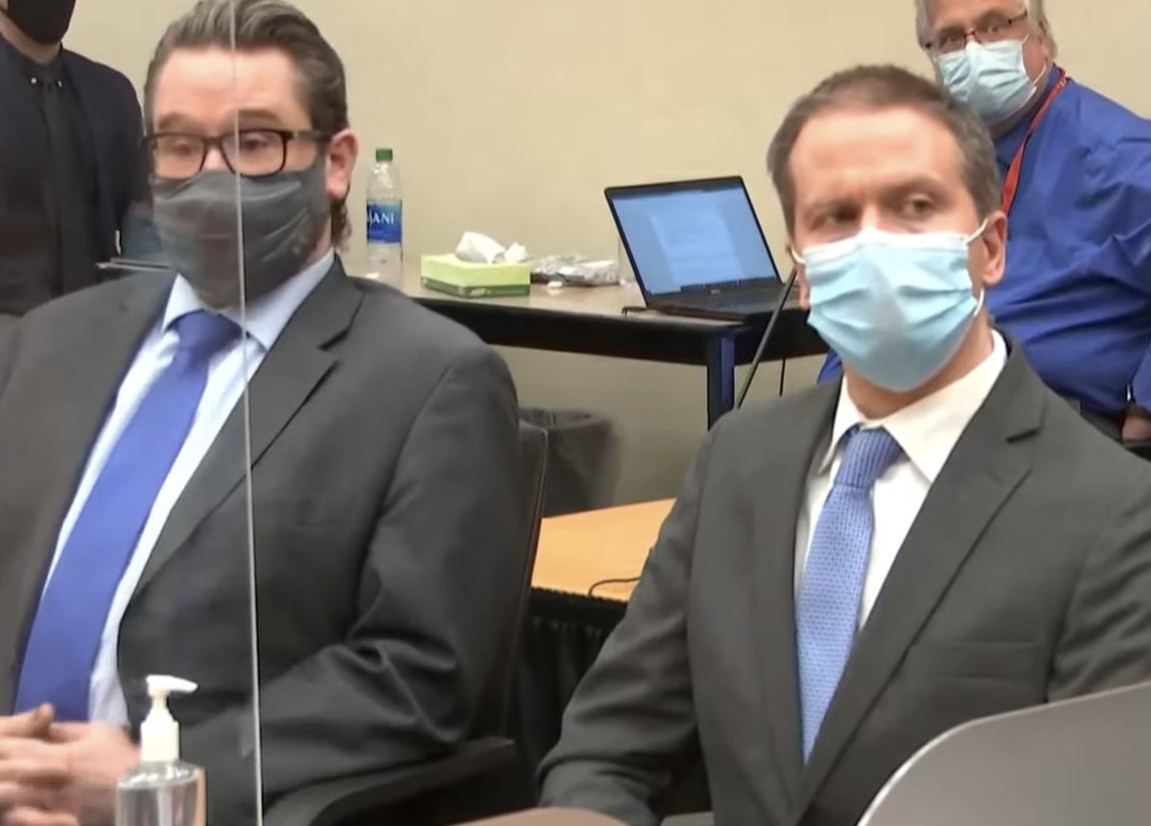On May 25th 2020, 46 year old George Floyd was murder by a cop after being put under initial arrest for an alleged counterfeit 20 dollar bill outside a Cup Foods, a grocery store in Minneapolis, Minnesota. According to BBC News at 8:01 p.m the employee ringing up Floyd made a call to 911 and at 8:08 two police officers arrived. Mr Floyd was with two other people sitting in a car that was parked around the corner. One of the officers, Thomas Lane, pulled his gun out after approaching the car and ordered Floyd to show his hands. Prosecutors said that Thomas Lane “put his hands on Mr Floyd, and pulled him out of the car.” They also stated that Floyd “actively resisted being handcuffed.” Court transcripts from police body cameras show that George Floyd appeared to be cooperative at the beginning of his arrest and repeatedly apologized to the officers after they approached his car. According to the repost at 8:14, Floyd “stiffened up, fell to the ground, and told the officers he was claustrophobic.” Derek Chauvin then arrived at the scene and while attempting to put Floyd in the police car with other officers, Chavin pulled Floyd away from the passenger side which caused him to fall to the ground. He laid on the ground, in handcuffs, and face down. While Floyd was restrained by officers, Derek Chauvin placed his knee in between his head and neck. He kept his knee there for more than nine minutes. Body cam footage from Thomas Lane and J Alexander Kueng show that Floyd said that he could not breathe more than 20 times that he could not breathe as well as begging “please, please, please”. At one point while he was restrained George Floyd gasps “You’re going to kill me, man.” Chavin kept his knee where it was and replied to Floyd “Then stop talking, stop yelling. It takes a heck of a lot of oxygen to talk.” Floyd then said “Can’t believe this, man. Mom, love you. Love you. Tell my kids I love them. I’m dead.” About six minutes into the period George Floyd had become non-responsive, bystanders urged the officers to check his pulse and when Officer Kueng checked Floyd’s right wrist he could not find one; however, the other officers did not move. It was not until 8:27 Chauvin removed his knee from Floyd’s neck. Floyd was put onto a gurney and taken to Hennepin County Medical Center in an ambulance. George Floyd was pronounced dead an hour later.
The trial took place on April 20, 2021. The whole trial took 3 weeks and over those weeks dozens of witnesses testified, hours of George Floyd’s arrest were played over and over again. Through the witnesses that testified in the first week the jury got all of the most crucial points of the arrest, such as if any drugs were a part of Floyd’s death and what kind of impact the arrest had on the witnesses. Multiple witnesses cried as they recollected the arrest. Some witnesses told the jury they felt guilt for not intervening. Charles McMillian was a witness. He talked with Floyd as he was being pinned to the ground by Chauvin and encouraged him to get up and get in the police car. While testifying he said “Once the police get the cuffs on you, you can’t win.” Derek Smith was one of the paramedics who was called to the scene. He testified that he looked for Floyd’s pulse as soon as he arrived but did not find one. He said that in efforts to save Floyd’s life on the way to the hospital he used a defibrillator and a machine that provides chest compressions, despite his efforts he could not revive Floyd. George Floyd’s girlfriend Courteney Ross gave the public a glimpse into their relationship and life together. Ross also talked about a primary issue that was in the case which was Floyd’s drug use. She told the jury that they both struggled with an opioid addiction, she said that their drug use began with legal prescriptions for chronic pain. She told the jury “We got addicted, and we tried really hard to break that addiction many times.” Acting police chief of the Minneapolis Police Department, Chief Medaria Arredondo testified as well and told the jury that Chauvin violated police policy when he knelt on Floyd’s neck for more than nine minutes. He said “Once Mr. Floyd had stopped resisting, and certainly once he was in distress and trying to verbalize that, that should have stopped.” He also said Chauvin violated police policy by not providing medical aid to Floyd when he became unresponsive. Pulmonologist Dr. Martin J. Tobin testified that George Floyd died from a “low level of oxygen.” He told the jury he did not see any evidence of an overdose. He stated that he had counted Floyd’s breaths and said that he was breathing at a regular rate in the minutes before he died, Dr. Tobin said that if Floyd had been suffering from an overdose the rate of the breath should have slowed.” Eric Nelson was the attorney leading Derek Chavin’s defense and he has argued that drug use and an underlying heart condition led to Floyd’s death. However every witness that was called by the prosecution denied that claim. Dr. David Fowler was a witness who was called by the defense, testified the opposite of every other witness. Dr. Fowler is the former chief medical examiner for the state of Maryland and he said he saw no evidence that Chauvin’s knee did not harm Floyd in any way. Barry Brodd, a former police officer, said that Chauvin’s restraint did not qualify as a “use of force” but eventually said that, under the policies of the Minneapolis Police Department, it did. He agreed when the prosecutors asked whether the level of force should change depending on how much a suspect is resisting. Dr. Fowler and Brodd were the only witnesses who offered to support Chauvin. When Thursday came Derek Chavin said he would invoke his Fifth Amendment right not to testify. His action set off a nation reckoning over race and policing but the public has not heard much from Chauvin. After all of the witnesses testified the themes became crystal clear almost immediately to the jury. This trial and the verdict attracted more attention than almost any other criminal proceeding in decades.
There were 12 jurors that were in the trial. When the time came all they wrote down a letter on a piece of paper of their decision. When the jury formed tallied the votes, there were 11 papers written with a “G”for guilty and one paper with a “U “for unsure. The New York Times interviewed Brandon Mitchell, who was juror number 52 and he spoke about how there were four black jurors, including himself, six white jurors and two multiracial jurors. Their ages ranged from their 20s to their 60s. In the interview Mitchell talked about how after closing arguments in the trial on April 19th, all 12 jurors gathered in a conference room at a hotel where they were secluded and they surrendered their phones for deliberations. They first considered second degree manslaughter which was the most serious charge that Derek Chauvin was facing. The jurors took turns speaking their minds but ended up deciding to wait until the second day of deliberations to talk about the murder charges. On the second day of deliberations they were woken up at 6:45. Mr. Mitchell said that they focused at one point on the exact cause of Floyd’s death. After several hours of discussions over a third-degree murder charge, the jurors had a favored conviction and after another half and hour, they all agreed on a second-degree murder convection. Mitchell talked about how the jurors did not want to rush. He said “We took a pause to soak it in and say, ‘This is what we’re about to do.’” They all decided to wait until after lunch to fill out the forms that make their decision official. At 2 p.m. they told the deputies that they had reached a verdict and they were taken to the courtroom where Judge Peter A. Cahill would read the verdict.
Many people were outside the Hennepin County Government Center watching the trial on their phones waiting for the verdict. Judge Peter A. Cahill then announced that Derek Chauvin has been found guilty on all three counts. Second and third-degree murder, and second-degree man slaughter. As the judge read the verdict Chauvin’s eyes wandered around the room left and right but he showed no signs of emotion. Judge Cahill then revoked Chauvin’s bail while he was being handcuffed and then was led out of the courtroom. Eric Nelson then followed Chauvin out of the courtroom both without any comments. The citizens around the courthouse shouted out with joy yelling “All three counts! All three counts!”. Many citizens described it to the LA Times as a weight lifted off their shoulders and multiple citizens spoke about if the verdict may have been different the reaction could have been catastrophic. Chauvin was booked into the Oak Park Heights state prison at 4:55 p.m.
Derek Chauvin now faces up to 40 years in prison for second-degree murder, 25 years for third-degree murder, and up to 10 years for second-degree manslaughter. He will be sentenced in about two months for the case that changed the world. The case that sparked worldwide protests against police brutality, racial injustice, and prompted demands for a change in how police officers are trained. People from all over the world are relieved about the verdict, but many have said that this is only the beginning.
[Image Credit: CT Mirror]





Be First to Comment